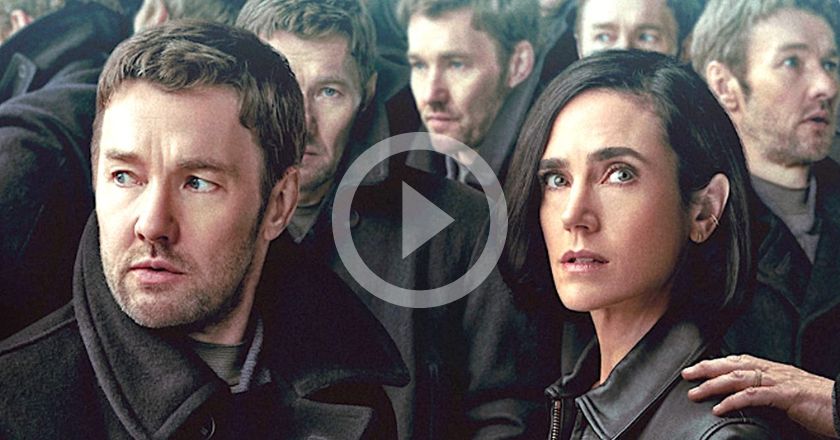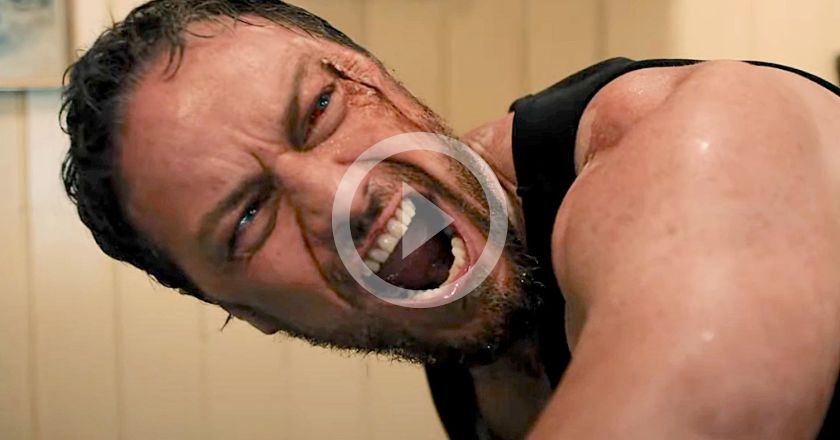
Director Taika Waititi has been crafting a unique brand of comedy ever since his debut film Eagle vs Shark in 2007, and with an unmistakable Kiwi earnestness that binds so many New Zealand comedies, he has developed a voice unto his own. His latest film, Jojo Rabbit, might be considered the third act of his unofficial coming-of-age trilogy, which was preceded by Boy and Hunt for the Wilder People.
Jojo Rabbit tells the story of a 10-year old boy whose childhood is spent in Germany during World War II. The boy’s name is Jojo Bletzer (Roman Griffin Davis) and his titular nickname derives from the mockery of others when he refuses to kill a rabbit. He is a member of the Hitler Youth and his education consists of weapons training and theory on the annihilation of Jews. Daily activities consist of knife wielding, grenade throwing and book burning, while other lessons include propaganda and metal collection.
Jojo lives with his mother (Scarlett Johansson) while his father is away fighting and his sister’s whereabouts is unknown. Jojo is an ambitious kid who idolises the Führer. His bedroom is strewn with Hitler posters, anti-Semitic scribblings and Nazi paraphernalia, and his best friend is an imaginary Adolf (played by Waititi himself).

The setting of Jojo Rabbit is grim indeed, and yet the story is entirely charming, earnest and yes, even hysterical. Waititi presents the war ““ and more specifically the Holocaust – through the eyes of a child and weaponises his satirical genius to extract a wealth of comedy. Much like the early work of Mel Brooks (The Producers) he attacks the constructs of Nazism with ridicule, revision and his overall disposition. Balancing gut-busting comedy with heart-wrenching tragedy, Waititi’s film is precisely designed as a contemporary social statement, which ““ thankfully ““ avoids being too preachy despite its obvious virtue.
First and foremost, the comedy is stunning. Waititi seizes every opportunity to push his boundaries and relishes each moment of being able to make light of things that are shocking. The audience I was in emitted audible gasps as the children of Jojo Rabbit plotted to kill Jews and saluted their notorious leader with great enthusiasm. Swastikas abound and anti-Semitism saturates the screen, and through it all lays the opposing sentiment. As young Jojo comes to learn of his mother’s resistance to the war, he begins to question all that he knows, and upon discovering a young Jewish girl hidden in a crawlspace of his house, his worldview and personal beliefs begin to deteriorate.
Young Roman Griffin Davis knocks the ball out of the park, delivering a ridiculously excellent performance that encompasses a myriad of emotions, themes and dexterity. His comprehension of Nazism is eerily concise, necessitating the power of Jojo’s greater arc, and his comedic timing lands with pinpoint precision. Waititi’s imaginary Hitler persona is a truly wonderful conception, not only ridiculing one of history’s most monstrous figures, but also serving as an important psychological construct. His happy-go-lucky Hitler, with his ceaseless encouragement, is a representation of Jojo’s absent father. There is no intention of representing the actual Adolf Hitler and it would be unfortunate for anyone to misunderstand the intention.

Scarlett Johansson is delightful and gives a sincere and tender performance as the freedom-fighting mother protecting her son from her own battles. She lights up the screen and spends every moment in a state of positivity, while her desperation and heartbreak hide behind her facade. Thomasin McKenzie is fantastic as the Jewish girl who befriends Jojo, with other players including Sam Rockwell and Stephen Merchant adding frivolity to the story. Archie Yates, who plays Jojo’s best friend, is perhaps the film’s biggest revelation, providing one “awww” moment after another. He is a personification of innocence and serves the story perfectly.
Jojo Rabbit is a delight and may be Waititi’s magnum opus. He treats his audience with respect, taking them on a journey that descends to some horrific and gut-wrenching depths, before ascending to magnificent heights. We all know that Nazis suck, and that’s not the takeaway message of Jojo’s story, but rather far-reaching ideologies in general (regardless of direction). In today’s increasingly sensitive and volatile society it’s all too easy to lose ourselves in rhetoric. It is a virtue that could have easily derailed the film, but with great caution the message is delivered in an entertaining and wholly enjoyable way. It’s also refreshing stand-alone film that doesn’t rely on intellectual properties or elaborate cinematic universes – of which we need more – and as such deserves to be seen theatrically.
SCREEN REALM SCORE: ★★★★☆
‘Jojo Rabbit’ will open in cinemas around Australia on Boxing Day.
https://www.youtube.com/watch?v=3wqIYctK1rY








